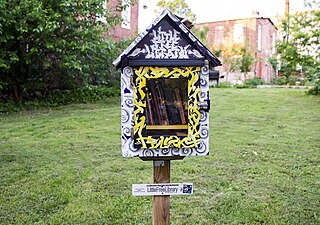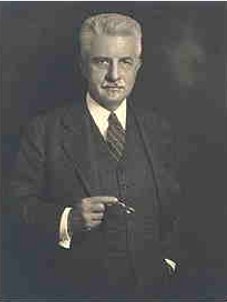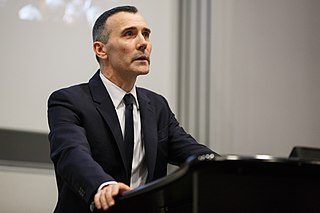Related Research Articles

The sociology of knowledge is the study of the relationship between human thought, the social context within which it arises, and the effects that prevailing ideas have on societies. It is not a specialized area of sociology. Instead, it deals with broad fundamental questions about the extent and limits of social influences on individuals' lives and the social-cultural basis of our knowledge about the world. The sociology of knowledge has a subclass and a complement. Its subclass is sociology of scientific knowledge. Its complement is the sociology of ignorance.
Philosophy of history is the philosophical study of history and its discipline. The term was coined by the French philosopher Voltaire.
Critique is a method of disciplined, systematic study of a written or oral discourse. Although critique is commonly understood as fault finding and negative judgment, it can also involve merit recognition, and in the philosophical tradition it also means a methodical practice of doubt. The contemporary sense of critique has been largely influenced by the Enlightenment critique of prejudice and authority, which championed the emancipation and autonomy from religious and political authorities.

Arthur Oncken Lovejoy was an American philosopher and intellectual historian, who founded the discipline known as the history of ideas with his book The Great Chain of Being (1936), on the topic of that name, which is regarded as 'probably the single most influential work in the history of ideas in the United States during the last half century'. He was elected to the American Philosophical Society in 1932. In 1940, he founded the Journal of the History of Ideas.
Quentin Robert Duthie Skinner is a British intellectual historian. He is regarded as one of the founders of the Cambridge School of the history of political thought. He has won numerous prizes for his work, including the Wolfson History Prize in 1979 and the Balzan Prize in 2006. Between 1996 and 2008 he was Regius Professor of History at the University of Cambridge. He is the Emeritus Professor of the Humanities and Co-director of The Centre for the Study of the History of Political Thought at Queen Mary University of London.
African philosophy is the philosophical discourse produced in Africa or by indigenous Africans. African philosophers are found in the various academic fields of present philosophy, such as metaphysics, epistemology, moral philosophy, and political philosophy.
Classical republicanism, also known as civic republicanism or civic humanism, is a form of republicanism developed in the Renaissance inspired by the governmental forms and writings of classical antiquity, especially such classical writers as Aristotle, Polybius, and Cicero. Classical republicanism is built around concepts such as liberty as non-domination, self-government, rule of law, property-based personality, anti-corruption, abolition of monarchy, civics, civil society, common good, civic virtue, popular sovereignty, patriotism and mixed government.

Positivism is a philosophical school that holds that all genuine knowledge is either true by definition or positive—meaning a posteriori facts derived by reason and logic from sensory experience. Other ways of knowing, such as intuition, introspection, or religious faith, are rejected or considered meaningless.
John Greville Agard Pocock was a New Zealand historian of political thought. He was especially known for his studies of republicanism in the early modern period, his work on the history of English common law, his treatment of Edward Gibbon and other Enlightenment historians, and, in historical method, for his contributions to the history of political discourse.

The Order of Things: An Archaeology of the Human Sciences is a book by French philosopher Michel Foucault. It proposes that every historical period has underlying epistemic assumptions, ways of thinking, which determine what is truth and what is acceptable discourse about a subject, by delineating the origins of biology, economics, and linguistics. The introduction to the origins of the human sciences begins with detailed, forensic analyses and discussion of the complex networks of sightlines, hidden-ness, and representation that exist in the group painting Las Meninas by Diego Velázquez. Foucault's application of the analyses shows the structural parallels in the similar developments in perception that occurred in researchers' ways of seeing the subject in the human sciences.
Jonathan Irvine Israel is a British historian specialising in Dutch history, the Age of Enlightenment, Spinoza's Philosophy and European Jews. Israel was appointed as Andrew W. Mellon Professor in the School of Historical Studies at the Institute for Advanced Study, Princeton, New Jersey, in January 2001 and retired in July 2016. He was previously Professor of Dutch History and Institutions at the University College London.

Dag Herbjørnsrud is a historian of ideas, author, a former editor-in-chief, and a founder of Center for Global and Comparative History of Ideas in Oslo. His writings have been published by Aeon, the American Philosophical Association (APA), Dialogue and Universalism, Cosmopolis, etc., and he was formerly a columnist for Al Jazeera English. Herbjørnsrud was the guest editor of a special issue of the bilingual journal Cosmopolis (Brussels), on "Decolonizing the Academy"; one of his contributors was the author and Professor Ngũgĩ wa Thiong'o. He sits on the Editorial Review Board of the book series Global Epistemics at Rowman & Littlefield.
Africana philosophy is the work of philosophers of African descent and others whose work deals with the subject matter of the African diaspora. The name does not refer to a particular philosophy, philosophical system, method, or tradition. Rather, Africana philosophy is a third-order, metaphilosophical, umbrella-concept used to bring organizing oversight to various efforts of philosophizing. Africana philosophy is a part of and developed within the field of Africana studies.
Ethan Kleinberg works on the acrobatics of modern thought. He is Class of 1958 Distinguished Professor of History and Letters at Wesleyan University, Editor-in-Chief of History and Theory and was Director of Wesleyan University's Center for the Humanities. Kleinberg's research interests include European intellectual history with special interest in France and Germany, critical theory, educational structures, and the philosophy of history. Kleinberg's wide-ranging scholarly work spans across the fields of history, philosophy, comparative literature and religion. Together with Joan Wallach Scott and Gary Wilder he is a member of the Wild On Collective who co-authored the "Theses on Theory and History" and started the #TheoryRevolt movement. He is the author of Emmanuel Levinas's Talmudic Turn: Philosophy and Jewish Thought (SUP); Haunting History: for a deconstructive approach to the past (SUP); Generation Existential: Martin Heidegger’s Philosophy in France, 1927-61 (CUP) which was awarded the 2006 Morris D. Forkosch prize for the best book in intellectual history by the Journal of the History of Ideas and co-editor of the volume Presence: Philosophy, History, and Cultural Theory for the Twenty-First Century (CUP). He is completing a book length project titled The Surge: a new compass of history for the end-time of truth.

Gabriel Rockhill is a French-American philosopher, writer, cultural critic, and activist. He is Professor of Philosophy at Villanova University, Director of the Critical Theory Workshop/Atelier de Théorie Critique, and former Directeur de programme at the Collège International de Philosophie.
In intellectual history and the history of political thought, the Cambridge School is a loose historiographical movement traditionally associated with the University of Cambridge, where many of those associated with the school held or continue to hold academic positions, including Quentin Skinner, J. G. A. Pocock, Peter Laslett, John Dunn, James Tully, David Runciman, and Raymond Geuss.

Richard Bourke is a UK-based Irish academic specialising in the history of political ideas. His work spans ancient and modern thought, and is associated with the application of the historical method to political theory. He is Professor of the History of Political Thought at the University of Cambridge, and a Fellow of King's College, Cambridge. He was formerly Professor of the History of Political Thought and Co-Director of the Centre for the Study of the History of Political Thought at Queen Mary, University of London. In July 2018 Bourke was elected a Fellow of the British Academy (FBA).
The discipline Idé och lärdomshistoria, translated as History of Science and Ideas, is an important part of the humanities faculties in most Swedish universities, most notably Stockholm, Uppsala, Lund, Gothenburg, Umeå and Södertörn. It is a broad field of study that often involves cross disciplinary research between intellectual history, history of science, medicine or philosophy, conceptual history, history of education and media history. It is taught in Universities at undergraduate and graduate levels, and is also an active field of research. The annual journal Lychnos publishes the current research of the discipline.
David Ewart George Boucher FRHISTS FACSS FLSW is a Welsh political theorist and philosopher of international relations.
References
- ↑ Grafton, Anthony. "The History of Ideas: Precept and Practice, 1950–2000 and Beyond", Journal of the History of Ideas 67#1 (2006): 1–32. online
- ↑ "The Invention of Humanity – Siep Stuurman | Harvard University Press". www.hup.harvard.edu. Retrieved 2019-06-24.
- ↑ Herbjørnsrud, Dag (2019-05-10). "Beyond Decolonizing: Global Intellectual History and Reconstruction of a Comparative Method". Global Intellectual History. 6 (5): 614–640. doi:10.1080/23801883.2019.1616310. ISSN 2380-1883. S2CID 166543159.
- ↑ Julie Fox-Horton (November 2015). "Review of Ginzburg, Carlo, The Cheese and the Worms: The Cosmos of a Sixteenth-Century Miller". H-Net Reviews. Retrieved May 10, 2019.
- ↑ John Maynard Keynes, Essays in Biography, Macmillan, 1933.
- ↑ Clark, Peter. The Keynesian Revolution in the Making, 1924–1936 (1988); Donald Markwell, John Maynard Keynes and International Relations: Economic Paths to War and Peace (2006) Oxford University Press.
- ↑ Richter, Melvin. "Begriffsgeschichte and the History of Ideas", Journal of the History of Ideas (1987): 247–263. in JSTOR
- ↑ Richter, Melvin. "Reconstructing the History of Political Languages: Pocock, Skinner, and the Geschichtliche Grundbegriffe", History and Theory (1990): 38–70. online [ permanent dead link ]
- ↑ Hellström, Petter (2016). "The great chain of ideas : The past and future of the history of ideas, or why we should not return to Lovejoy". Lychnos: 179–188.
- 1 2 3 Arthur Lovejoy: The Great Chain of Being: A Study of the History of an Idea (1936), ISBN 0-674-36153-9
- ↑ Ronald Paulson English Literary History at the Johns Hopkins University in New Literary History, Vol. 1, No. 3, History and Fiction (Spring, 1970), pp. 559–564
- ↑ Arthur Lovejoy, Essays in the History of Ideas, ISBN 0-313-20504-3
- ↑ Isaiah Berlin, Against the Current: Essays in the History of Ideas, ISBN 0-691-09026-2
- ↑ Skinner, Quentin. (1969) "Meaning and Understanding in the History of Ideas", History and Theory8 (1): 3–53.
- ↑ Dorschel, Andreas. Ideengeschichte. Göttingen: Vandenhoeck & Ruprecht, 2010. ISBN 978-3-8252-3314-3
- ↑ Herbjørnsrud, Dag. (2019-05-10). "Beyond Decolonizing: Global Intellectual History and Reconstruction of a Comparative Method". Global Intellectual History. 6 (5): 614–640. doi:10.1080/23801883.2019.1616310. ISSN 2380-1883. S2CID 166543159.
- 1 2 Gordon, Peter E. "What is intellectual history? A Frankly Partisan Introduction to a Frequently Misunderstood Field". Harvard University, Cambridge, Massachusetts.
- ↑ Felluga, Dino. "Modules on Foucault: On History", Introductory Guide to Critical Theory.
- ↑ Foucault, Michel. "Archaeology of Knowledge, Introduction", A.M. Sherida Smith, Ed. Vintage, 1982.
- ↑ Moyn, Samuel; Sartori, Andrew, eds. (June 2013). Global Intellectual History. Columbia University Press. ISBN 9780231534598.
- ↑ "Global Intellectual History: Vol 4, No 2". Taylor & Francis. Retrieved 2019-06-24.
- ↑ Haakonssen, Knud; Whatmore, Richard (2017-01-02). "Global possibilities in intellectual history: a note on practice". Global Intellectual History. 2 (1): 18–29. doi:10.1080/23801883.2017.1370248. hdl: 10023/17249 . ISSN 2380-1883. S2CID 148755525.
- ↑ Dunn, John (2013-11-21). "Why We Need A Global History of Political Thought" . Retrieved 2019-06-24.